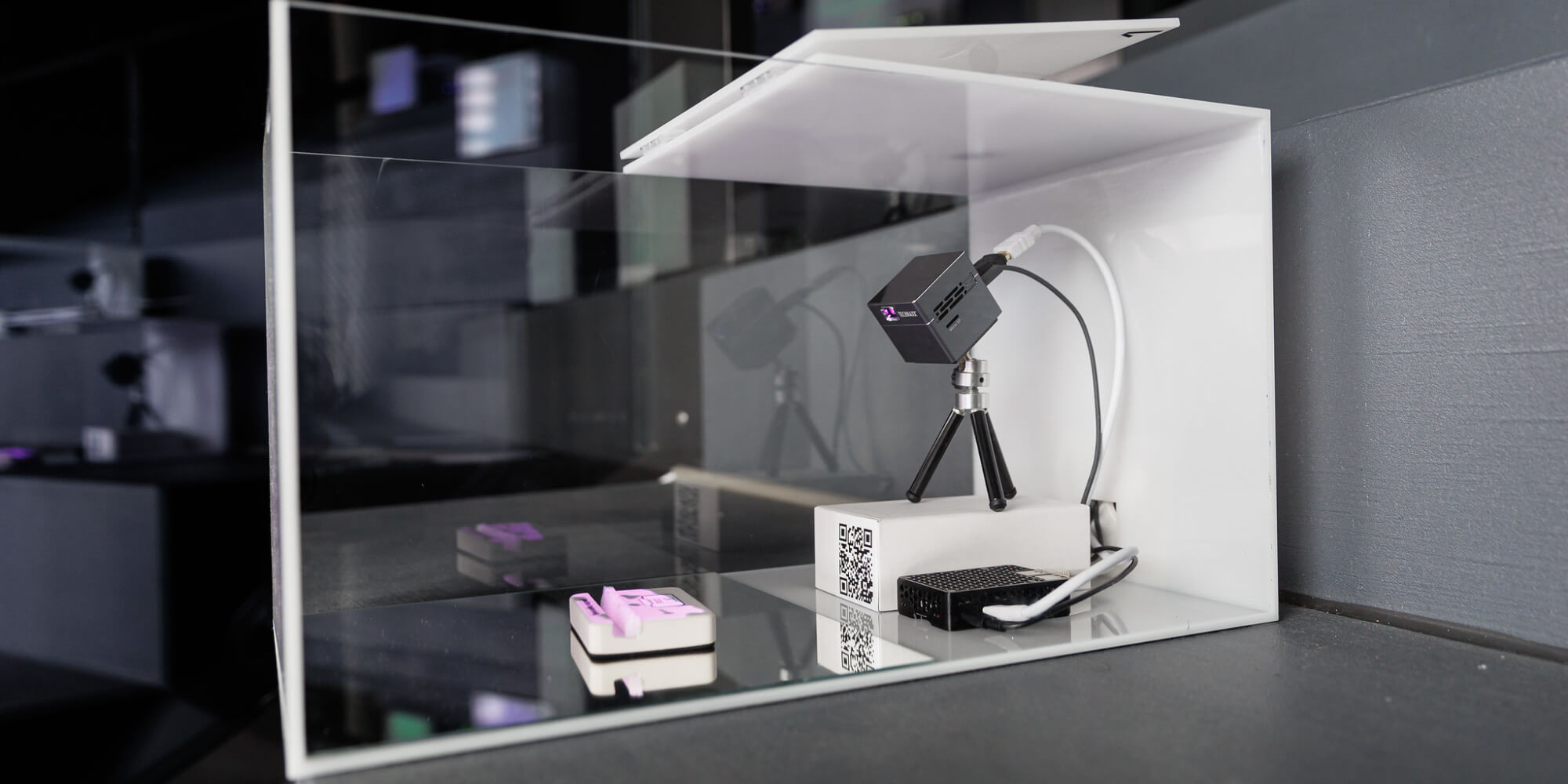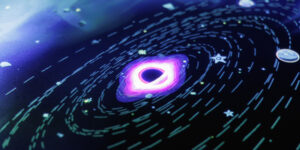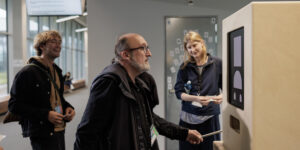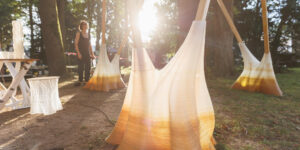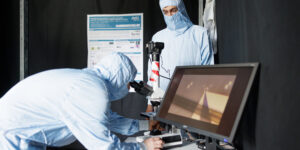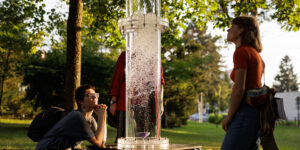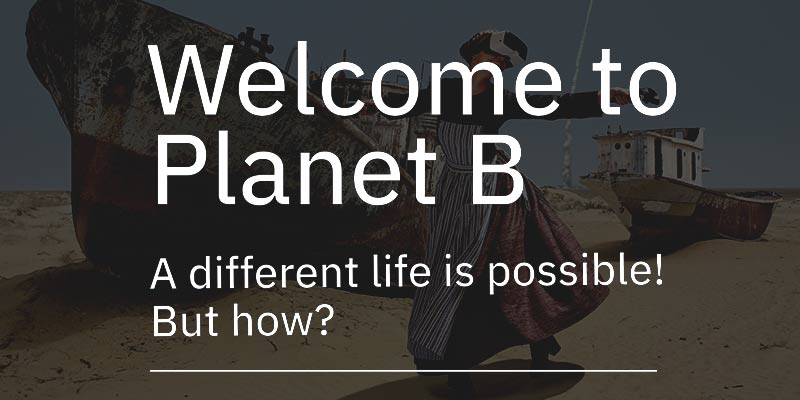What if we embrace uncertainty?
Christopher Lindinger (AT)
Unknown, diverse and blurred, it lies before us, our future. Even if many attempts, in foreseeing developments and interpreting their effects, appear to come slightly closer to it, the future still remains a great unknown, concealing an opaque mesh of possible ramifications and options. The climate catastrophe, the war in Ukraine, or the (seemingly) never-ending Corona pandemic: all these amplified by the media, can feed a demoralizing, fearful, or despondent view of the new times. Yet we must not ignore one crucial unknown in the equation for measuring our future: ourselves. After all, we are the X that makes any prediction, however precise, merely an approximation, a probability. Our attitude towards what is to come, our decisions and actions have an impact on where we are heading in the future, which developments are pushed or prevented, whether the equation works out in the end or not.
As a university, it is in our DNA not to shy away from the unknown, but boldly and courageously engage with it and to penetrate its depths. The complexity of the current challenges calls for a creative combination of different perspectives and approaches. Connections must be made between scientific disciplines, between science and art, and between society. A transdisciplinary methodology in research and teaching must be the credo of a modern university. Only together can effective changes be initiated and implemented. For this reason, it is natural for us to forge partnerships, find partners, and build a strong network.
A vibrant collaboration between JKU and Ars Electronica was established three years ago. The close cooperation is based on the common goal of interweaving art and science more closely in the long term, working toward an open transfer of knowledge with society and promoting a concept of technology that puts people at the center. The projects of the Institute of Technology (LIT) and Ars Electronica interweave science, art and society in an impressive way, forming the visible level of a common, creative striving for innovation. The Festival University, which is taking place for the second time, the Campus as a festival location and theme-specific art and science residencies all pursue the same goal.
Another strong line of connection leads further East, to the University of Applied Arts Vienna and the former Wiener Postsparkasse, where shared space has been rented. The manifesto “Innovation through Universitas,” written in 2019, defines the substance of the cooperation. Words have since been followed by actions and a variety of joint projects. In the winter semester of 2023, a joint bachelor’s degree program will start, focusing on transformation processes and seeking answers as well as approaches in both the sciences and the arts. A prototype for this is the course “What if … Shaping our future,” which took place in the summer semester of 2022 in Linz, Vienna and at the International Academy Traunkirchen. 25 students from both universities from 19 different fields of study were invited to participate in the course, with the goal of developing speculative future scenarios and prototypes based on scientific facts. Through curiosity and a desire to engage in the creative process, five remarkable interdisciplinary group works emerged in a very short time, addressing topics as diverse as artificial intelligence, empathy and human communication, nutrition and sustainability, and educational equity. Alternative solutions were then formulated.
At the European level, we are delighted to be the Johannes Kepler University lead partner in the winning consortium for the new and ninth Knowledge and Innovation Community (KIC) on the topic of culture and creativity. Together with more than 50 institutions and partners from science, society, industry and business — including Frauenhofer, Goethe-Institut, City of Amsterdam or Industry Commons Foundation — effective changes for a sustainable and habitable Europe can be brought about on the continental level. Austria has a strong voice in the consortium with JKU, Kreativwirtschaft Austria, Ars Electronica and the University of Applied Arts. As JKU, our focus is clearly on higher education, innovation and research. Together with the European network, our goal is to promote the interweaving of different disciplines and sectors, shifting the bridge to society and art to the center of future higher education.
A mapping study was conducted a year ago aimed at identifying European universities, research and cultural institutions dedicated to this interweaving of art and science. In order to reinforce the topic as a whole and to do justice to the dynamics of constant change, and to raise the institutions’ visibility and promote networking among them, the research was transferred to the digital platform artsciencemap.org. The result is an exemplary atlas that reflects the diversity of European art and science impulses, in which agglomerations connections are depicted.
In collaboration with art, science and society and together with a multitude of fellow campaigners, our wish is to continue to venture optimistically and full of curiosity beyond the confines of own discipline. In this spirit, we look toward the unknown, toward new times, ceaselessly building on the foundation of a livable and sustainable future.
